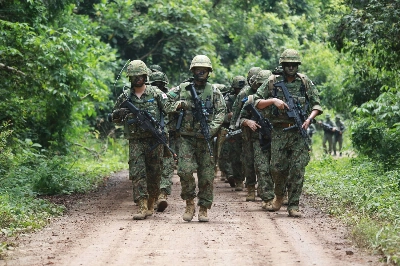The summit of the Shanghai Cooperation Organization (SCO) is a curious event. Most of the year, the organization toils in obscurity, but its annual heads-of-state meeting invariably elicits breathless commentary about the rise of a bloc that is designed to stop the West or, more specifically, the United States from expanding its influence in Central Asia.
This year's one-day meeting was no exception, although the presence of Iranian President Mahmoud Ahmadinejad compounded concern about SCO. The worries are premature: SCO is a relatively young organization whose future is unclear. Its members have genuine security concerns that they cannot tackle individually. Regional cooperation makes a lot of sense. If SCO helps provide stability to a troubled region, then it should be supported, not criticized.
SCO was formed in 1996; it was then known as the Shanghai Five, taking its name from the city in which the leaders first met, and included Russia, China, Tajikistan, Kyrgyzstan and Kazakhstan. The organization focused on resolving border disputes and battling the terrorist and separatist groups found throughout the territories of the member states. When Uzbekistan joined the group in 2001, SCO was born.

















With your current subscription plan you can comment on stories. However, before writing your first comment, please create a display name in the Profile section of your subscriber account page.